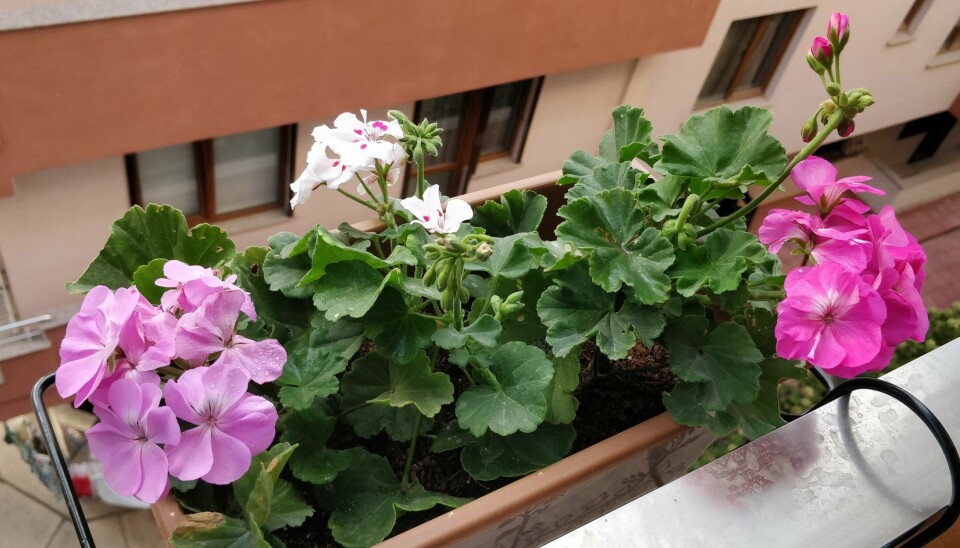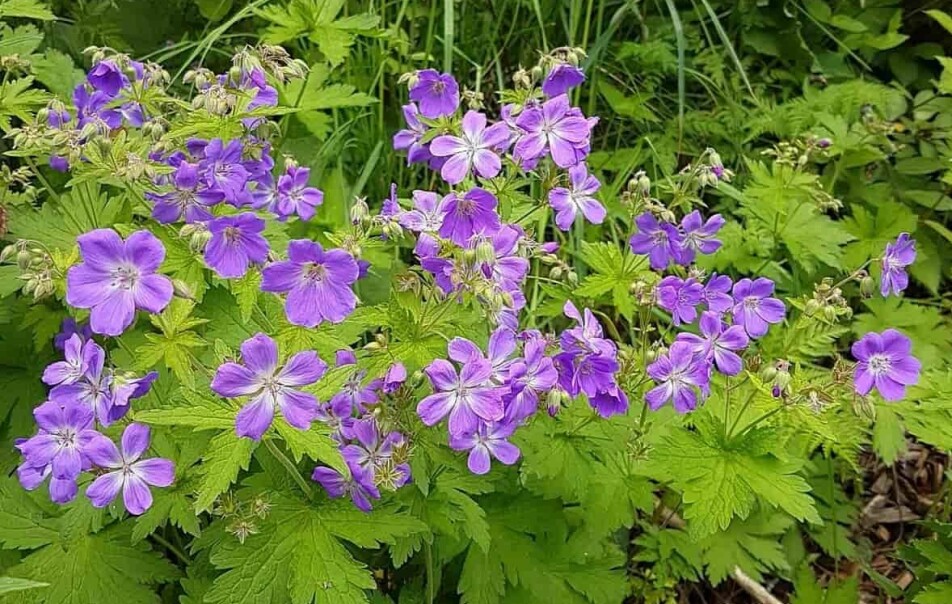
This plant’s perfume can affect your health
Plants with a strong scent, such as geraniums, lavender and conifers, can have a positive impact on our health. Norwegian researcher believes they involve good memories.
Smells affect us. They can make us wrinkle our noses and feel nauseous.
They can also make us feel good.
Research from Canada shows that soothing scents in stores help consumers relax and make them more inclined to purchase something.
And researchers from Germany are now investigating whether it would work to add baby fragrance to nasal sprays to relieve depression – because many people find sniffing babies’ heads so comforting.
It turns out that scents from plants can have a similar effect.
People with stress-related illness
Swedish researchers believe that the new study shows how scents from nature evoke associations, feelings and physical reactions in people who struggle with stress-related illness.
According to Hans Nordahl, a professor of medicine at NTNU, stress-related illnesses have several variants.
“Examples of stress-related disorders include anxiety, pain syndromes, chronic fatigue syndrome/ME, headaches, muscle pain and acute stress disorders,” he says.
Cranesbill gave experience of inner peace
It turns out that the smell of geranium species, such as Armenian cranesbill, had the best effect for the participants in the study.
“The scent from this particular plant seemed to support patients’ mental recovery and contributed to an experience of inner peace,” Anna María Pálsdóttir, a researcher at the Swedish University of Agricultural Sciences (SLU), said in a press release.

In Norway, we have many wild-growing species of this particular flower, which are cultivated in gardens and parks.
The special quality of this flower is that when you rub it, it gives off an aroma reminiscent of roses or citrus.
You might also recognize it as the geranium, a common houseplant.
Several of the participants associated the geranium’s fragrance with childhood and security, and it was especially these smells that created a feeling of peace and quiet.
Flowers don’t necessarily provide effect
“I believe that everything that creates positive associations improves our health,” says Nordahl.
He believes that smells can draw our focus away from illness and toward something positive, outside of ourselves.
“Everything that leads us to pay more attention to external things and not to inner thoughts of worry, which are typical of fatigue syndromes and depression, is valuable,” he says.
Therefore he thinks the positive effect is not necessarily due to flowers and their fragrance, but simply comes from activities that support good health.
Both artificial and natural garden
The Swedish study lasted for five years and included 59 participants.
The participants participated in nature-based rehabilitation treatment that took place in a rehabilitation garden.
The garden consisted of two parts: one part that was planted with herbs, shrubs and flowers and the other that consisted of trees and plants that were allowed to grow freely.
In the study, the participants describe how they experience the scents from the garden.

Described their feelings
Participants shared how the natural scents from herbs, fruits, flowers, conifers and dry grass had a calming effect, and gave them a sense of well-being and presence.
These are reactions that help reduce stress, say the researchers.
The participants participated in the rehabilitation program for 12 weeks at a time. In order for everyone to experience autumn, winter, spring and summer at least three times, the research project continued for five years.
What are the cause and effect?
Although the study is an intervention study that has been going on for a long time and includes a relatively large number of participants, it still has some limitations.
It is not easy to know what is cause the participants to become less stressed. The nature-based therapy also consisted of other things than just taking in the smells.
“It isn’t particularly clear what causes the effect,” Nordahl says about the study.
Nordahl wonders for example: Is there something very special about the smell of flowers that helps with stress? Or is it that patients focus more on things outside themselves and are actively seeking other experiences that support their well-being?
Or could it be the associations from childhood that help reduce stress?
The researchers involved in the study do not claim that the stress reduction is solely due to the participants' experiences with smell. However, they believe that the study tells us something about how people's mental health can be affected by the experience of smell.
Who can use this knowledge?
The researchers think the findings are interesting for people who are involved in nature-based therapy, but also for gardeners who work in greenhouses and outdoors.
They believe we can also benefit from the findings at home as well.
“Plants that exude a fragrance are an interesting segment in the garden sector, and we hope that our results can contribute to increased interest in how the air around plants can affect people, including in their home environment,” says Sara Spendrup, who is also a researcher at SLU and one of the authors of the study.
Reference:
Anna María Pálsdóttir et al: Garden Smellscape – Experiences of Plant Scents in a Nature-Based Intervention. Frontiers in Psychology. September 2021. doi: https://doi.org/10.3389/fpsyg.2021.667957































